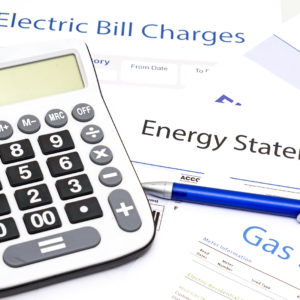Granite State utility ratepayers owe the New Hampshire Public Utilities Commission a big high five.
It said “No” in November to a plan to double the cost of an energy efficiency program known as NHSaves.
The commission prevented an increase that would have required electricity ratepayers to pay a surcharge of $8-$16 per month instead of the $2-$8 per month they currently pay.

The rejected plan was developed by the utilities that administer NHSaves. It was based on advisory guidance from the Energy Efficiency and Sustainable Energy (EESE) Board, a group of statutorily appointed state bureaucrats and representatives of environmental and other advocacy groups. The EESE Board itself uses a complex construct called the Energy Efficiency Resource Standard (EERS) to develop goals and funding plans for ratepayer-funded energy efficiency.
The EERS provides a technical solution to the problem of increasing energy efficiency. Unfortunately, that technical solution really does not address the underlying problem. The problem, if you can call it that, is human behavior.
In the real world, New Hampshire citizens earn money and then decide how to spend that money. They buy homes, cars, food, travel, and entertainment. Some even upgrade their homes and cars with energy efficiency in mind. But they make that choice based on their own preferences and circumstances.
Ratepayer-funded energy efficiency programs take away some of that choice by mandating consumers pay for a certain amount of system-wide energy efficiency. As a result, those programs provide a technical fix to a non-technical problem.
Proponents of NHSaves, which raised $73 million in 2021, assert that saving energy benefits everyone, not just the home and business owners who lower their energy costs. Those wider benefits primarily result from a decreased need to acquire more energy.
Paradoxically, saving energy often causes customers to use more, not less.
Experts call this well-understood phenomenon a “rebound” effect. It was first noted for coal users back in the 1850s. Called Jevon’s paradox after the English economist who first documented it, the rebound effect defines “that efficiency enables growth. New technologies that can produce more goods from a given amount of resources allow the economy as a whole to produce more. More resources get used overall. The paradox is that we tend to assume that the more efficiently we use a resource the less of it we will use.” Jevon called this increase in resource use a “backfire.”
Whether people use more energy or less, saving it costs money. The idea behind NHSaves speculates that people may be reluctant to perform energy efficiency improvements on their homes and businesses because the upfront costs can be steep, while the savings accrue over time. In theory, giving customers a boost from NHSaves may help people get started – hence, the technical fix for a non-technical “problem.”
But if making energy efficiency improvements makes your home more comfortable and saves you money, shouldn’t you make every effort to make those improvements, regardless of whether some government-mandated program provides help? Should electricity users help finance insulation projects? Would apartment dwellers, who don’t own their living space, ever be able get some of this kind of help? These questions make ratepayer-funded energy efficiency a debatable issue – especially its costs.
This question of cost significantly impacts those living on low or fixed incomes. When their energy bill goes up, they must make sacrifices elsewhere in their budget. Some low-income homeowners may have to choose between heat and food. That choice has been documented for pensioners in England and Scotland for years. Called energy poverty, this problem affects many NH citizens as well.
On the business side, additional costs mean fewer dollars to invest in products and services and the new jobs they generate.
Ultimately, the surcharges that fund energy efficiency are taxes, and only your elected state legislators have the authority to set them.
Current NH House bill HB549 recognizes that reality and charts a path forward to keep these surcharges affordable.
The PUC keeps cost at the forefront of the decisions it makes about utility matters. Its rejection of a major increase in the cost of energy efficiency programs recognizes that those costs have a significant impact on the ratepayers footing the bill.
That repudiation will mean a new, less ambitious, and more affordable plan will be developed over the next few months.
About the Author
Rep. Michael Vose (R-Epping) is chairman of the House Science, Technology, and Energy committee.
If you want to recommend that your Legislators support this bill, you can:
Click here to find your Legislators and their contact information.
Posted by GST Chairman Ray Chadwick
